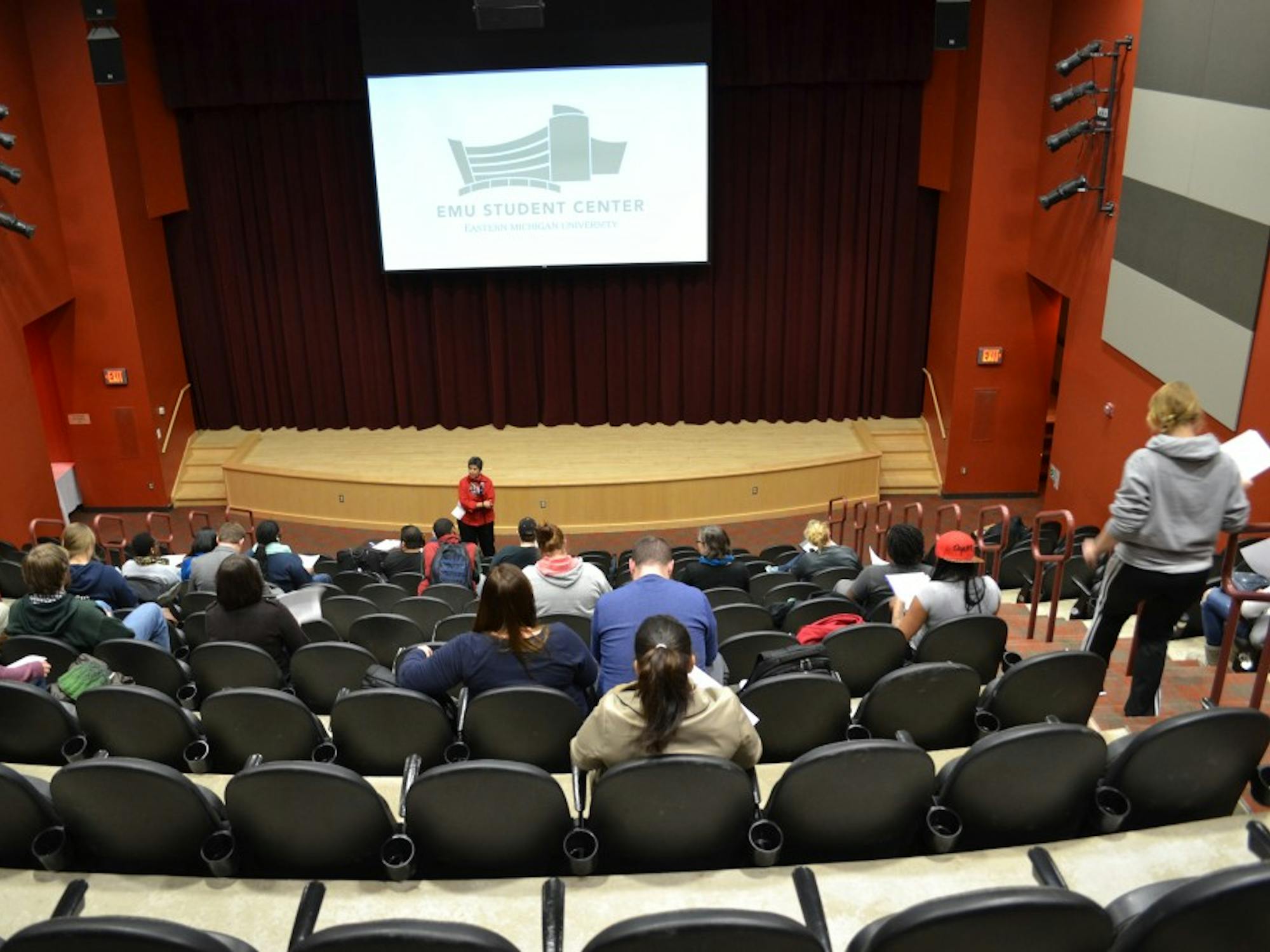Eastern Michigan University’s Star Lecture series concluded Tuesday night with “Manifestations of Poverty: Who Cares? The Cultural Politics of Indifference” presented by the director of EMU’s school of social work, Lynn Nybell. Her lecture highlighted the increasing trend towards neo-liberalism in the United States and its effects on American culture and its economy.
Neo-liberalism is a philosophy that stresses free trade, deregulation of markets and enhancing the private center. This philosophy was popularized during President Ronald Reagan’s administration and is currently the dominating political theory that shapes the global economy.
“I think we should go back to the progressive liberal thinking we had in the past,” Nybell said. “We need to promote a human right’s platform. We have to have moral basis.”
Throughout her lecture, Nybell stressed the issue that Americans are now conditioned to believe they are strictly individuals and not part of a greater public good. She said Americans are taught to believe from an early age that they are a brand, not a person. It is their responsibility to be the CEO of their brand and market themselves to the world.
This marketing is done more and more through social media platforms like Facebook and Twitter. By using these platforms too much people are removing themselves from the actual world they are living in, blinding themselves from events that are happening outside their computer screens.
Rebecca Sipe, the director of EMU’s Honors College and host of the series, thanked all of this year’s presenters.
“This year we have enjoyed outstanding lectures focused on our theme, Manifestations of Poverty…I think it needs to be stressed that Dr. Nybell, and all of our presenters put many hours [of work] into this series,” Sipe said “They do it as a labor of love and we are fortunate to have professors who will do this sort of thing.”
The Star Lecture series is presented by EMU’s Honors College every academic year.
This year’s series was done in six parts. Other presenters of the poverty series included: Paul Leighton, Linda Williams, Peter Higgins, Marty Raymond, and Valeria Polokow.
Sipe said she hopes students will leave this year’s series with a deeper understanding of what poverty really means.
“An understanding that when a person is really born into poverty that factor alone has a huge impact on shaping their physical health and their social mobility,” Sipe said. “It’s not a deciding factor, but it is certainly a factor we need to think about when deciding to provide support from universities or providing universal health care. Why should a baby born in poverty be limited in its whole life trajectory because the parents cannot afford preschool? We wanted to problematize the issue so that students may begin to ask questions where they may not have had questions before.”









